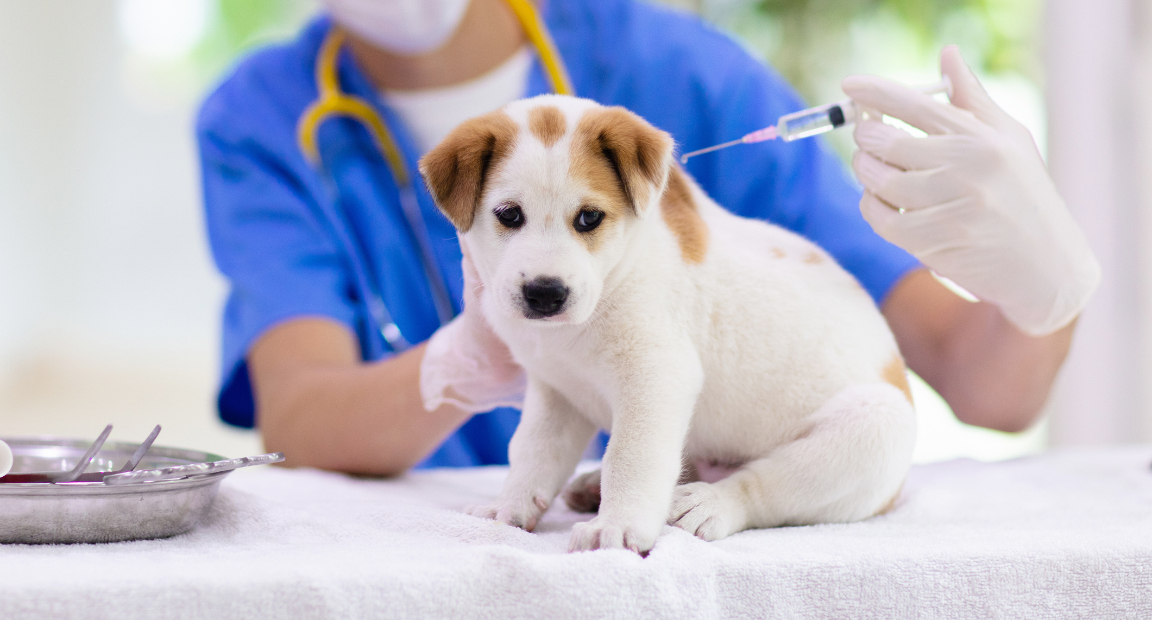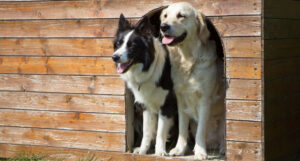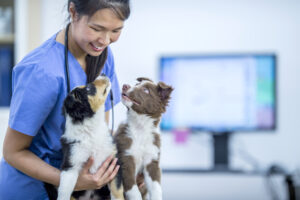We all want to do our best to keep our little puppies safe because the world is a dangerous place for them. Immunisations aid in preventing common illnesses that, in some cases, could quickly claim the life of a beloved puppy. In this article, we’ll talk about a typical puppy vaccination schedule, the various vaccines that veterinarians administer and the vaccine side effects.
When should puppies be vaccinated?
Antibodies are transferred to new-born puppies through their mother’s milk. These antibodies aid in protecting the puppy from the illnesses to which its mother is immune. This maternal immunity typically begins to wane by the time the pup is 8 to 12 weeks old. Despite individual differences, the number of vaccinations a puppy needs are based on when they first started and considers this maternal immunity. The goal is to provide the puppy with the greatest level of protection possible, first through maternal antibodies and then through vaccination.
Vaccine protocol
Your veterinarian will recommend a vaccination protocol based on your puppies’ individual needs and the type of vaccination they use, however, a typical vaccination protocol for puppies is outlined below.
Age 6- 8 weeks
Generally, puppies receive their first vaccination between 6 to 8 weeks of age. If a puppy has their first vaccine when they are 6 weeks old, they may require a fourth booster to ensure effectiveness.
Age 10-12 weeks
Two to four weeks after their first vaccine, puppies typically receive their second vaccination.
Age 14-16 weeks
Puppies receive their third vaccination. In some cases, this may be their final vaccination and complete the course.
Age 16-18 weeks
A fourth vaccine may be recommended by the veterinarian depending on factors including the type of vaccination that was administered and the age at which the puppy received their first vaccination.
Age 52 weeks
Puppies receive their first booster at around a year old. After this booster, the veterinarian will recommend the future vaccination protocol which might be an annual or triennial booster. Canine cough vaccinations typically require annual boosters especially if your dog has an active social life or needs to attend boarding kennels.
Vaccine administration and types
Modified live or attenuated vaccines trigger an immune response by putting a small amount of the organism in the patient. Instead of using a live organism, killed or inactivated vaccines use an inactivated version along with an adjuvant to help stimulate the immune system. Most canine vaccinations are administered through an injection under the skin between the shoulder blades. Some canine cough vaccinations are delivered intranasally by squirting a small amount of liquid into the nostrils, orally, or by traditional injection.
Which vaccinations do your dogs need
The core vaccinations are recommended for all dogs in Australia. Non-core vaccinations are regarded as non-essential, but this may vary depending on where you live or other factors that could increase your dog’s risk of contracting a particular disease.
| Core | Non-core | Not recommended |
|---|---|---|
| Canine distemper virus | Bordetella bronchiseptica | Coronavirus |
| Canine parvovirus | Parainfluenza | |
| Canine adenovirus | Leptospira interrogans |
Canine cough
Canine cough is widespread and contagious illness that affects dogs and is also referred to as “kennel cough” or “infectious tracheobronchitis.” There are typically several different organisms present, most frequently Bordetella bronchiseptica and canine parainfluenza viruses. The disease typically presents as a severe, dry cough that occasionally mimics gagging or retching. It may sound as if your dog’s throat is blocked with something. On rare occasions, the pup patient may experience fever and appetite loss. In severe cases, complications like pneumonia may develop. Most of the time, however, treating canine cough with cough suppressants, anti-inflammatories, or antibiotics is not necessary or only minimally effective.
Canine distemper
Canine distemper was once prevalent in Australia, but today the virus is much less common because of vaccinations. The paramyxovirus that causes the disease has an impact on the nervous, gastrointestinal, and respiratory systems of the body. Contact with an infected dog or items like shared food bowls can spread the disease. Although this virus is frequently fatal, most of the treatment focuses on symptomatic management.
Canine parvovirus
A terrible gastrointestinal condition, canine parvovirus can be fatal in young puppies. The virus frequently manifests as bloody diarrhoea and vomiting. Even though it can affect any dog, unvaccinated puppies that are four months old or younger are particularly vulnerable to getting the virus. The vaccine is very effective at preventing this virus. In-hospital intensive care with intravenous fluids, antibiotics, plasma transfusions, pain relief, and management of secondary complications like respiratory disease are common components of treatment. In this situation, prevention is unquestionably preferable to treatment.
Infectious Hepatitis (Canine adenovirus)
This virus, which causes liver inflammation is spread through contact with infected dogs or their bodily fluids, such as their urine or ocular discharge. Puppies with the infection may exhibit respiratory symptoms, a fever, fatigue, vomiting and diarrhoea. Some canines get cloudy eyes. Because the liver is a crucial organ, severe hepatitis in young puppies can quickly be fatal. Like the other viruses mentioned here, supportive care is frequently used to treat the virus’ symptoms and any related complications.
Vaccine reactions
No pet parent wants their pet to endure adverse treatment effects. The good news is that most puppies handle vaccinations well and are back to their rambunctious selves shortly after vaccination.
It is normal to anticipate mild pain where the vaccination was given. Some puppies may experience mild fever, sleepiness and quietness for a day or two after receiving a vaccination. On rare occasions, a lump may appear where the vaccination was given. After receiving an intranasal vaccination, puppies may sneeze for one or two days. All of these are quite common and typically little to no treatment is needed. Call your veterinarian if you are at all concerned following the administration of a vaccine.
Occasionally, a puppy may have a reaction to a vaccine. If you notice any of these symptoms, contact your veterinarian right away.
- swollen face;
- urticaria or hives, which are raised lumps on the body;
- vomiting and/or diarrhoea;
- collapse; or
- breathing difficulties.
These can be signs that your pup is having a severe allergic reaction known as an anaphylactic reaction, which can be life threatening.
If you puppy has had a vaccine reaction in the past, make sure you let your veterinarian know before giving your puppy further vaccinations.
What is titre testing?
In some situations, titre or serological testing may be recommended in place of vaccinations. This blood test looks for antibodies to specific diseases. Canine parvovirus and canine distemper virus are the main ones that are tested for, but canine adenovirus can also be checked. It may not be necessary to vaccinate your pet if they have high antibody levels. This can be beneficial for pets who have experienced severe allergic reactions to vaccinations. It does have some limitations in that it only reveals one type of immunity (antibodies) and does not provide a comprehensive picture of your pet’s immune status. Also keep in mind that some establishments, like boarding kennels, might not accept a titre test as a reliable confirmation of disease protection and might still request a vaccination certificate. Your veterinarian will be able to advise you on the best course of action for keeping your dog safe.
Whatever course of action that you and your veterinarian decide, remember that an important component of your pup’s vaccination appointment is a health check. This helps catch early signs of disease and gives you a chance to chat about any concerns you may have about your dog’s health.
You and your new furry friend are off to an excellent start now that you are informed about common vaccination procedures for your pup. Don’t forget to contact your veterinarian if you have any concerns about the health or welfare of your dog.
Disclaimer: not all items and conditions are covered by pet insurance. Please refer to your policy documents and Product Disclosure Statement (PDS) for more information.
References
Disease risks for dogs in social settings
Pet insurance can help by covering a portion of the eligible vet bill if the unexpected happens. Because it is difficult to predict the costs of veterinary care, it can help to have measures in place to help prepare for the unexpected. Check out our partner network and explore our policy tools to find a pet insurance policy.
Not all conditions or items are covered by Pet Insurance. Refer to the applicable Product Disclosure Statement for information about coverage and exclusions.



 Fact checked
Fact checked





